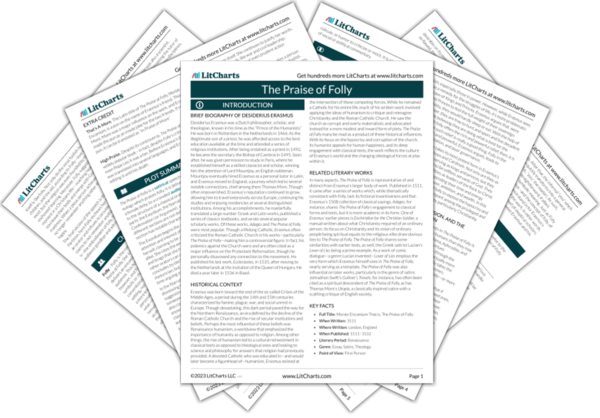Previous
Homer
|
Previous
Homer
|
Plato Character Analysis |
Next
Thomas More
|
Hence there is either no difference, or if there is a difference, the state of fools is to be preferred. First their happiness costs least. It costs only a little bit of illusion. And second, they enjoy it in the company of so many others. The possession of no good thing is welcome without a companion.

Hence there is either no difference, or if there is a difference, the state of fools is to be preferred. First their happiness costs least. It costs only a little bit of illusion. And second, they enjoy it in the company of so many others. The possession of no good thing is welcome without a companion.